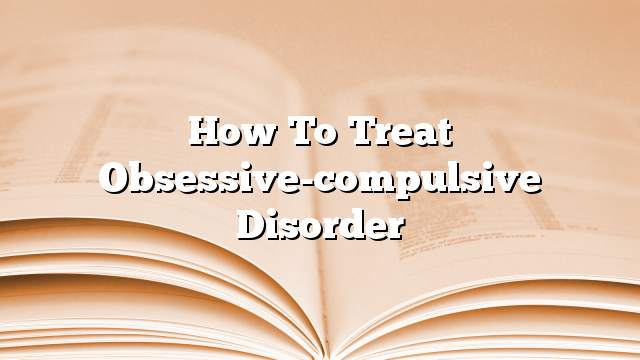Obsessive-compulsive disorder
Compulsive obsessive-compulsive disorder is characterized by the existence of thoughts, sensuality and illogical fears, which in turn lead to compulsive behavior. Often people are aware that their actions are unrealistic, while constantly changing or ignoring them, but these attempts increase the rate of trauma and thus become a concern, in the end, these compulsive behaviors are mandatory to alleviate their anxiety and distress.
Most obsessive-compulsive disorders are centered around a particular theme. For example, the fear of bacterial infection causes people to wash their hands many times during the day, causing skin scars and wounds to themselves. These annoying thoughts and repeated efforts cause them discomfort and discomfort.
How to treat obsessive-compulsive disorder
- The choice of treatment: It is often the choice of appropriate treatment for the person according to the severity or weakness of obsessive-compulsive disorder; the beginning is the psychological treatment, which includes cognitive behavioral therapy or pharmacological addition, as the type of medication varies depending on the age of the person and the severity of his obsession, for example if the case is simple to use only Cognitive behavioral therapy, as in young people.
- Behavioral Cognitive Therapy: It consists of two types:
- Cognitive therapy: It is a change and resistance to all the things and misconceptions that are generated for the person, and amplify the sense of personal responsibility.
- Behavioral Therapy: It involves exposure and prevention of response, as exposure depends on the fact that the anxiety gradually decreases after the actual confrontation of the exciting and frightening thing in sufficient time, until the person reaches a degree that is not afraid of them, or to confront the stimulant causing this obsessive-compulsive disorder. Who are formed and have a related relationship to germs, must be confronted. They are done by touching things that they believe are contaminated, and thus all the anxiety and fear associated with them disappear.
- Type of drug: Some medicines have proven effective in the elimination of OCD and treatment, through its work in inhibiting the recovery of serotonin within the cell nerve, and also characterized by these drugs a few side effects, and are not sedatives or similar as some think, and therefore do not lead to addiction , It is based on the description of the medical specialist, and should be continued and continued to address them to prevent the emergence of symptoms, especially in cases of severe and chronic obsessive, the improvement is slow, and gradually, so should not lose hope.
